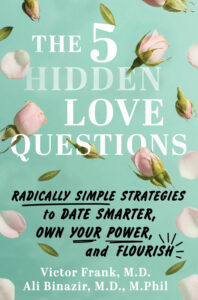Over years of study, I’ve had a fair number of teachers in various spiritual disciplines: hatha yoga, Christian mysticism, Sufism, Taoist philosophy, Tibetan tantra, Insight Meditation, tai chi, wing chun, and Far Stranger Stuff Which I’m Embarrassed to Mention. For better or for worse, I’m no longer the wide-eyed absolute beginner. With exposure, study and practice, you come to get a sense of the different styles of teaching out there and what works well and what doesn’t. Here are some guidelines I’ve come up with for my own studies which you may also find useful (see #5):
1. There are no saints. All teachers are human. They pee and poo just like me and you.
It’s easy to idealize your teacher into some creature of perfection who absolutely has your well-being in mind at all times and can do no wrong. Wrong! Teachers can and do get angry, testy, exploitative, jealous, oblivious, horny, unconscious, and all kinds of other unsavory things that make us human. Stories of emotional, sexual and substance abuse amongst spiritual teachers are legion (look up Chogyam Trungpa or Bhagwan Shree Rajneesh) and still happen every day. Which brings us to…
2. Never abdicate your own good sense.
Let’s say you have a super-awesome teacher who has totally changed your life and seems like a really great person. Said teacher asks you to give up all your worldly possessions and move to, say, Guyana. Oh, and while you’re at it, why don’t you drink some of this special Kool-Aid he’s brewed up, eh?
DON’T DO IT. Keep your senses about you.
The example of Jim Jones and his cult may be an extreme one, but stuff on a smaller scale happens all the time: asking to leave your friends, change your diet, wear different clothes, take on a new name, move, give up your possessions, give up your spouse, sit on his lap, do other weird rituals, mistreat others, and who knows what else. The whole point of spiritual teaching is to have more trust in your own inner teacher. So if it doesn’t feel right to you, don’t do it — pure and simple.
3. No teacher is omniscient. Seek multiple reliable sources.
Who’d be a really good teacher to have — someone who’s put in a lot of work, written lots of books, and is universally revered, right? Hmm, how about the Dalai Lama?! Excellent choice. Now let’s say you have a challenge in your relationship with your spouse, or with your kids. Sorry buddy — you are out of luck. Because Tibetan lamas (and many other spiritual teachers) take a lifelong vow of celibacy, they have no firsthand information on sex, marriage and family life. Your corner grocer Jim may have better advice in that domain.
Life is multifaceted, yo. And now that Emanuel Swedenborg and Gottfried Leibniz are both dead, nobody’s omniscient anymore. Go to the right source for the problem you’re trying to solve.
4. If a teacher is really good, about 90% of what he/she says is true. Which means that 10% is totally wrong. You have to do the sifting yourself.
I once had an exceptionally gifted teacher whose teachings catalyzed all kinds of major huge realizations in me. But every once in a while, he’d go off on some weird tangent about politics which was totally inappropriate to the setting. Eckhart Tolle is another one of my favorite teachers — a man with exceptional insight and real presence. And then he’ll talk about the vibrational energy of your cells or some other unscientific hinterland where you weren’t planning to visit.
Keep the good and leave the rest behind. And how do you know if it’s any good? That’s what Rule #5 is for:
5. Nothing is true unless it’s true for you. Test out each principle for yourself and see how it works.
“Question authority” were the last words of a spiritual teacher no less exalted than Siddhartha Gautama, the Shakyamuni Buddha himself. Actually, he supposedly said “Be ye lights unto thine selves”, but the recording was from an Android phone and was a little garbled. Anyway, the Buddha was a big fan of the principle of ehi passiko — go figure it out for yourself. What I say sounds good to you? Great! Go test that stuff out.
Life is meant to be an experiment, not a taking of dictation. And a good teacher’s ultimate concern is your liberation — your ability to stand on your own two feet and make decisions that hold you in good stead in the long run, even when teacher’s not around. So: don’t think anyone’s infallible or omniscient, keep your eyes open, and try things on to see how well they fit. This is how you keep your power and grow in it.
